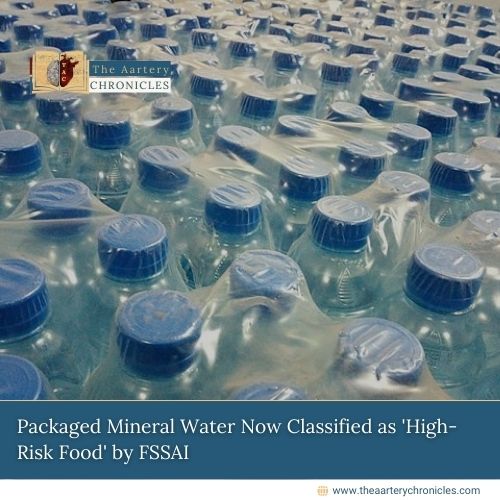

Packaged Mineral Water Now Classified as 'High-Risk Food' by FSSAI
Introduction
The Food Safety and Standards Authority of India (FSSAI) has reclassified packaged drinking and mineral water as high-risk food items. Effective November 29, 2024, all businesses dealing with these products must undergo annual third-party food safety audits. This measure aims to ensure stricter quality control and reduce consumer health risks.
Why the Reclassification?
The decision follows recent changes to the Food Safety and Standards (Prohibition and Restrictions on Sales) Regulations, 2011. These amendments removed the earlier requirement for mandatory Bureau of Indian Standards (BIS) certification for certain food items, including packaged water. With this reclassification, packaged drinking and mineral water will now be subject to more rigorous safety protocols.
Key Requirements for Businesses
As per the new guidelines:
- Businesses holding central licenses for producing packaged water must undergo annual inspections by FSSAI-recognized third-party auditing agencies.
- This mandate aligns packaged water with other high-risk food categories like animal-based products and specialized nutritional foods.
- The goal is to identify and mitigate contamination risks that could impact public health.
Impact on Soft Beverage Producers
The regulation also extends to manufacturers of non-alcoholic soft beverages, placing them under similar safety scrutiny. Regular audits and compliance checks will now be a prerequisite for operating in this sector.
Strengthening Consumer Protection
FSSAI’s move is a proactive step to strengthen consumer trust and safety. With increasing reliance on packaged water and beverages, such inspections are critical to maintaining high production standards.
What's Next for Businesses?
Food businesses must promptly adapt to these changes by scheduling their annual audits with authorized agencies. Failure to comply could lead to penalties or license revocation.
This reclassification serves as a reminder that ensuring food safety is a shared responsibility between regulators and industry players, ultimately benefiting consumers.
Source: Inputs from various media Sources









